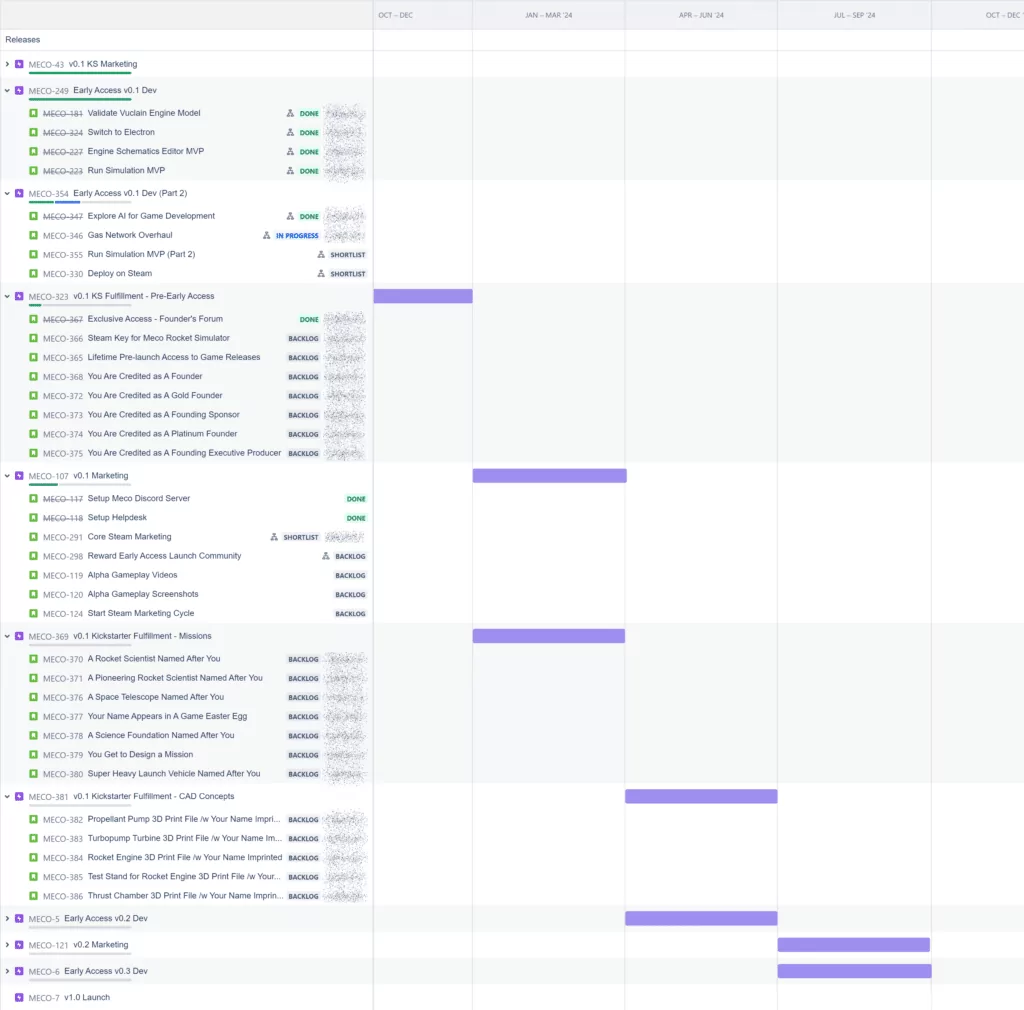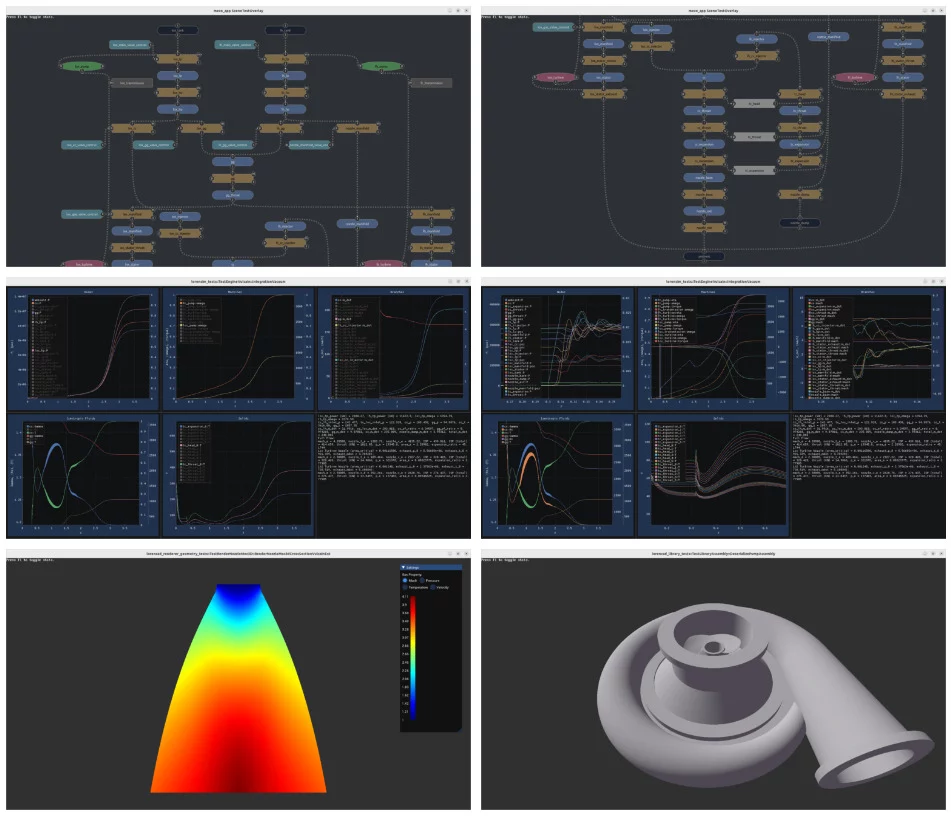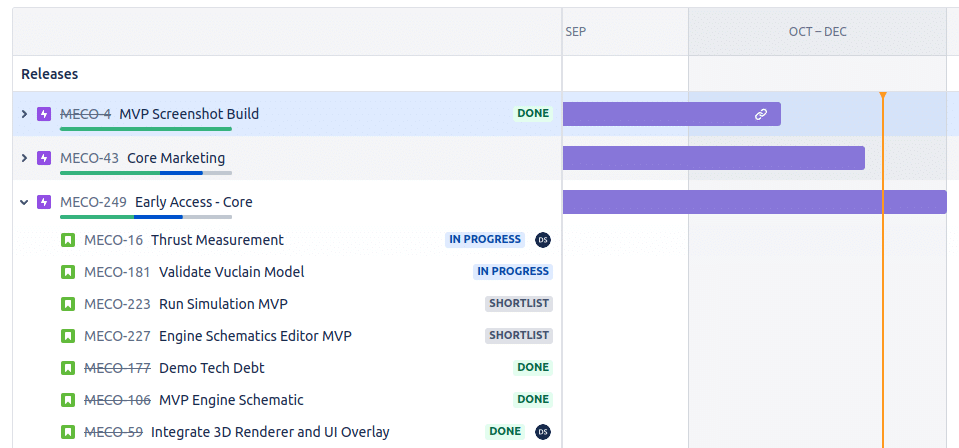
Dear Meco Fan,
I want to highlight that while the schedule serves as a guiding illustration, the intricate nature of our work means it’s not set in stone. The complex layers of development introduce variables that can shift timelines despite our best efforts.
- The phased releases are outlined to ensure focused development, but I’m prepared to adjust as needed to maintain standards.
- Status markers like ‘Done,’ ‘Shortlist,’ and ‘Backlog’ provide a snapshot of where we are, but these, too, can evolve as the project does.
- I’ve sequenced tasks with a logical flow, yet the interconnectedness of our work may necessitate changes in that sequence.
- Your feedback is a critical part of this journey. I’ve built-in checkpoints for this purpose, though these timing may shift as we progress.
- Marketing and promotions are plotted out, but the timing of these efforts may adapt to align with development phases and community engagement.
- Reward fulfillment is a promise I intend to keep, though the timeline for these special recognitions might be fluid to ensure they’re done right.
- Testing is crucial and will be thorough. This stage is particularly subject to refinement as we strive for perfection.
- Flexibility is a cornerstone of this plan, as unforeseen challenges are a reality in a project of this scope.
- Resource management is carefully considered, though I remain vigilant and ready to reallocate as the project demands.
Your backing makes this all possible, and I am wholeheartedly committed to navigating this complex project with transparency and adaptability. Your understanding and continued support mean the world, giving me the runway to get Meco off the ground.
Thank you once again for embarking on this adventure with me.
Warm regards,
Dannie
Creator, Meco Rocket Simulator
Accounting for the Timeline
I have already covered these in detail in the previous State of the Sims, so I’ll give you a recap here:
- Switch to Electron, React, and Babylon.js – Meco had a relatively simple custom 3D and UI game engine; however, it became clear that we wanted to focus on extensibility, intuitive UI, and rocket engine design/simulation features rather than game engine development. This move also simplifies writing addons for the game UI, as they can be written with JavaScript and HTML5.
- Set up AI workflows to boost development productivity – As you would know by now, generative AI like ChatGPT and Stable Diffusion looked like they were about to disrupt many industries. So, I wanted to make sure that Meco was not caught out. The TLDR is that we now have a neat AI game art pipeline to give us much more varied characters and environments when Missions are implemented in v0.2. Also, as of now, I am glad to report that despite trying my best to guide ChatGPT 4, it cannot handle programming solutions to anything more than grad-level aerospace/rocket science problems. However, AI proves promising as an assistant with knowledge of fundamental physics, equations, and terminology, so MecoGPT in-game would be splendid.
Gas Simulation Overhaul
This is the latest addition to the timeline, proving to be the most tricky yet. More than two years ago, I decided to implement a simplified gas simulation to move on to develop other parts of Meco. It had limitations as friction and heat transfer were ignored, and the network topology was limited by each junction being only able to have one inbound branch. Unfortunately, I discovered in July that this simplified methodology also rendered gas valves defunct.
Thus, it became apparent that I could no longer avoid implementing a 1D-CFD finite element gas simulation. I will write in detail how this is accomplished, but for our purposes here, let’s say that the code has to solve a large multi-variate non-linear problem in an incremental manner using quasi-newton methods with gradient descent such as described by Levenberg–Marquardt and Broyden–Fletcher–Goldfarb–Shanno (the limited-memory and box constrained version) in nested iterations—all that while attempting a solution 100,000 times a second on a modest PC.
We now have a Proof-of-concept coded in Python that passes the test cases needed. The accuracy of the simulation has been verified with Fanno Flow equations (for friction effects), and I’m working on validating it with Raleigh flow equations (for energy transfer effects) now. Unlike Fanno and Raleigh flow equations, the simulation can handle simultaneous friction and energy transfer in a duct. After all that, we port the code to C++ and integrate it with the rest of the simulation.
Rewards Fulfillment
As detailed in the timeline above, the Kickstarter rewards will be fulfilled in 3 stages.
- Stage 1: v0.1 Release – The paramount step of the game’s first early access release – Steam keys for backers will be given out before the game is launched on Steam.
- Stage 2: In-game Missions Release (v0.2) – This will handle most “Your name in-game” rewards.
- Stage 3: CAD proof-of-concept (v0.3?) – The 3D printable model rewards will effectively be proof-of-concept models for the game.


